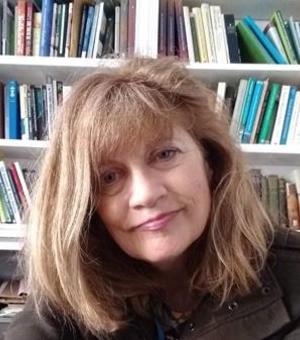Professor Lynda Mugglestone
I also teach English language at Trinity College, Oxford. See https://www.trinity.ox.ac.uk/people/lynda-mugglestone
Lynda Mugglestone is Professor of the History of English at Oxford University, and a Fellow of Pembroke College. She has published widely on the history of English, with particular reference to historical phonology as well as lexicography and lexical history. Publications include Lost for Words: The Hidden History of the Oxford English Dictionary, Dictionaries: A Very Short Introduction, The Oxford History of English, Samuel Johnson: the Arc of the Pendulum OUP, and Samuel Johnson and the Journey into Words, as well as many articles and book chapters, and an edited collection on the OED. Her most recent book was Writing a War of Words. Andrew Clark and the Search for Meaning in WWI. She has recently been awarded a Knowledge Exchange Fellowship in association with Johnson’s House in London, and will be curating a new interpretative exhibition in the dictionary garret which opens on July 3rd 2024. She will be taking up a Houghton Library Fellowship at Harvard next year to continue work on Samuel Johnson for a new book on Samuel Johnson’s garret lexicography.
Undergraduate Teaching Areas:
Language and persuasion, especially English in the history of advertising. Co-convenor (2020--) of 'Language, Persuasion, People, Things' .
Language and ideology (I supervise a wide range of language-related undergraduate dissertations)
Discourse and Diversity in the History of English (a critical survey of some of the silences in traditioal language history, especially in relation to issues of gender, race, social location, and private writing)
History of English 1400-present day (orthography, lexis and lexical change, dictionaries and grammars, language attitudes, media discourse etc)
Representing regional English in literary texts
Graduate teaching Recent graduate teaching modules include:
- History and approaches to the history of English
- English in the Eighteenth Century.
- Language and Identity in Victorian Fiction
I am a Governor of Samuel Johnson's House in London and involved in planning a major new exhibition on Francis Barber for 2022. In 2020, I was co-curator of 'The Art of Advertising' exhibition which opened in the Weston Library in Oxford. See:
https://visit.bodleian.ox.ac.uk/event/art-of-advertising
and also:
Podcasts:
Babbling a Dialect of France: Loanwords, French, and Johnson's Dictionary. Posted: 13 Feb 2012
Hard words, best words. words in use, writing the inventory of English. Posted: 9 Oct 2012
Blogposts
‘The Economist’, July 2010, position piece and ‘expert guest’ in The Economist's online debate on language addressing the motion "The English-speaking world should adopt American English
‘A journey through spin’, Guest blog for OXfordWords blog. http://blog.oxforddictionaries.com/
‘Woman – or suffragette’ ? http://blog.oup.com/2013/04/suffragette-word-origin-evolution-etymology/
http://beyondthetrenches.co.uk/words-and-women-ii-writing-gender-and-identity-in-early-1915/
For an extensive set of posts on language and language change in the First World War, see the English Words in War-Time Project at htttp//wordsinwartime@wordpress.com




